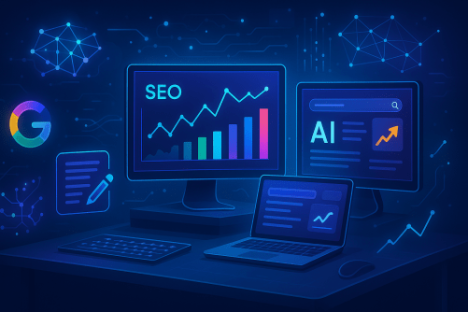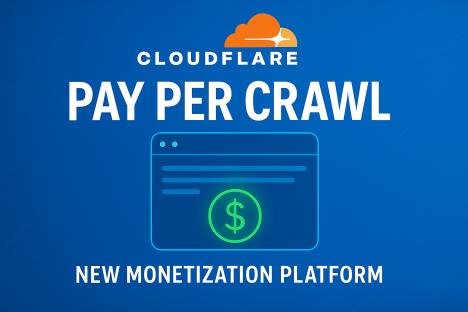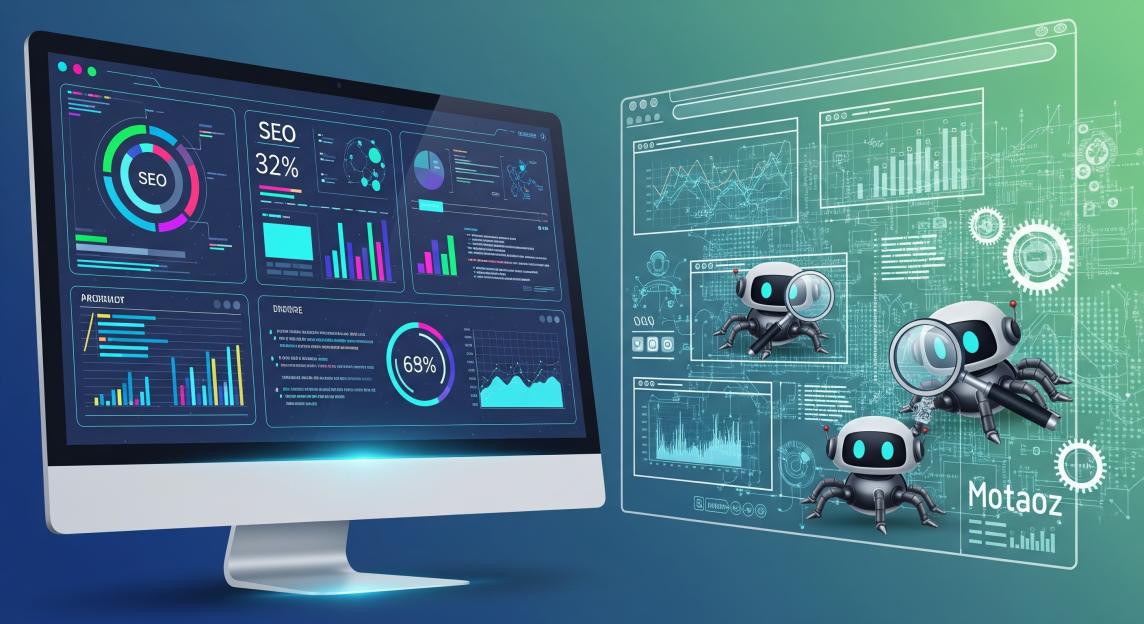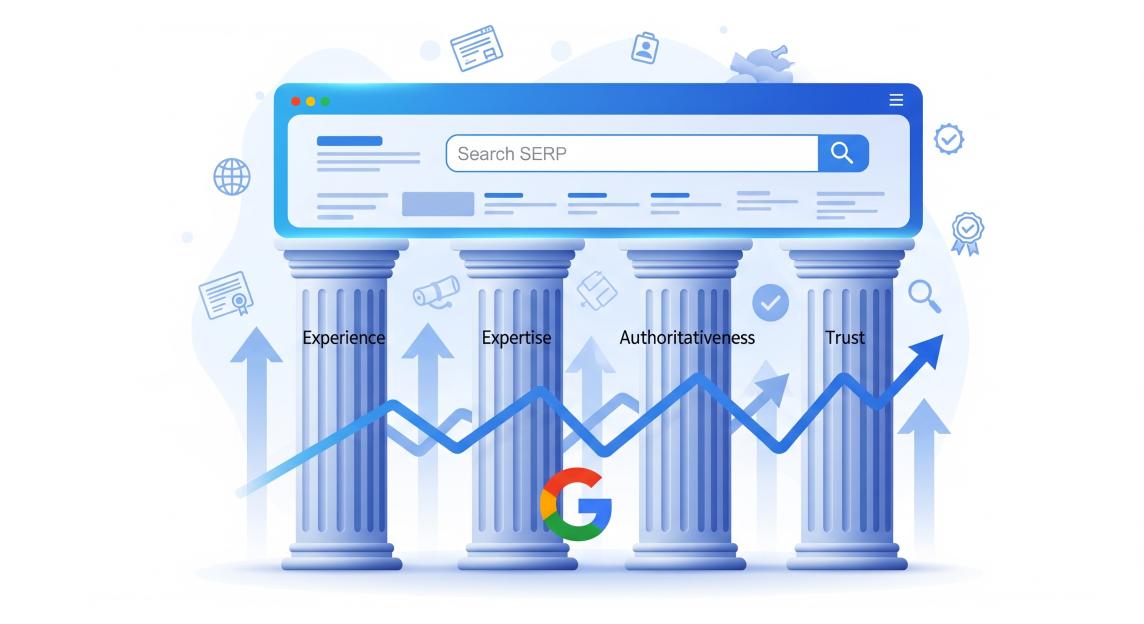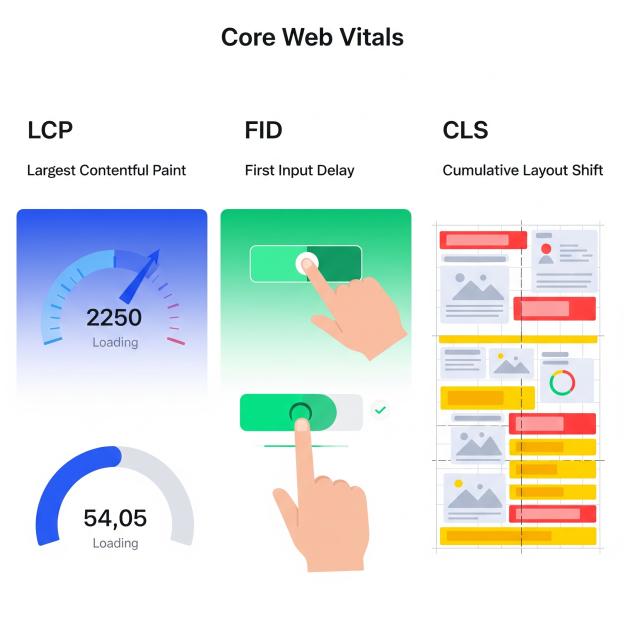Artificial intelligence has arrived to level the playing field, and LLM (Large Language Model) SEO tools are transforming how we approach search engine optimization forever.
The days of guessing what Google wants are over. Smart marketers are now using AI-powered SEO tools that can analyze millions of data points, predict ranking factors, and create content that search engines actually love. These aren’t just fancy keyword stuffersâthey’re sophisticated platforms that understand context, user intent, and the complex algorithms that determine your search visibility.
What Are LLM SEO Tools and Why Do They Matter?
Large Language Model SEO tools represent the next evolution in digital marketing technology. These advanced platforms use artificial intelligence to understand, analyze, and optimize content for search engines in ways that were impossible just a few years ago.
Unlike traditional SEO tools that focus on basic metrics like keyword density or backlink counts, LLM SEO tools can:
- Understand semantic relationships between words and concepts
- Analyze user intent behind search queries
- Generate natural, engaging content that ranks well
- Identify content gaps in your niche
- Optimize for featured snippets and voice search
- Predict algorithm changes and ranking factors
The impact on businesses has been remarkable. Companies using AI-powered SEO tools report average traffic increases of 40-60% within six months of implementation. More importantly, this traffic converts better because the content addresses real user needs rather than just targeting keywords.
The Top 15 LLM SEO Tools Transforming Digital Marketing
1. Jasper AI â The Content Creation Powerhouse
Jasper AI stands out as one of the most comprehensive LLM SEO tools available today. Originally known as Jarvis, this platform has evolved into a content creation machine that understands SEO principles at a fundamental level.
Key Features:
- SEO-focused content templates
- Real-time optimization suggestions
- Integration with Surfer SEO
- Brand voice customization
- Multi-language content generation
Pricing: Starting at $49/month for the Creator plan, with unlimited words at $125/month for the Teams plan.
Best For: Content marketing teams, agencies, and businesses producing high-volume content.
Users consistently praise Jasper’s ability to maintain brand consistency while creating SEO-optimized content. The platform’s Boss Mode feature allows for long-form content creation with natural keyword integration and semantic optimization.
2. Copy.ai â The Versatile AI Writing Assistant
Copy.ai has positioned itself as the go-to tool for marketers who need quick, effective SEO content across multiple formats. From blog posts to social media captions, this tool understands how to optimize content for different platforms and search intents.
Key Features:
- 90+ content templates
- SEO blog post wizard
- Keyword research integration
- Content performance analytics
- Team collaboration features
Pricing: Free plan available, Pro plan at $49/month, Team plan at $249/month.
Best For: Small to medium businesses, solo entrepreneurs, and marketing teams looking for versatility.
The platform excels at creating content briefs and outlines that naturally incorporate target keywords while maintaining readability and engagement.
3. Writesonic â The SEO Content Specialist
Writesonic has carved out a niche as a specialized SEO content creation tool. The platform focuses specifically on creating content that ranks, with features designed around modern SEO best practices.
Key Features:
- AI article writer with SEO optimization
- Keyword research and analysis
- Competitor content analysis
- Real-time SEO scoring
- Bulk content generation
Pricing: Free plan with limited credits, Pro plan at $20/month, Business plan at $195/month.
Best For: SEO specialists, content agencies, and businesses focused on organic traffic growth.
Writesonic’s standout feature is its ability to analyze top-ranking pages for any keyword and create content that incorporates the best elements of successful competitors.
4. Frase â The Content Research and Optimization Expert
Frase takes a research-first approach to SEO content creation. This LLM tool analyzes search results to understand what users are actually looking for, then helps create content that answers those specific questions.
Key Features:
- SERP analysis and research
- Content briefs generation
- AI writing with SEO focus
- Answer extraction from competitors
- Content optimization scoring
Pricing: Solo plan at $15/month, Basic plan at $45/month, Team plan at $115/month.
Best For: Content strategists, SEO consultants, and businesses focused on topical authority.
The platform’s research capabilities are particularly impressive, automatically identifying questions users ask about your topic and suggesting content structures that address these queries.
5. Surfer SEO â The Technical SEO Optimization Leader
Surfer SEO has integrated LLM capabilities into its already powerful technical SEO platform. The result is a tool that can both analyze technical SEO factors and create optimized content.
Key Features:
- Content editor with real-time optimization
- SERP analyzer
- Keyword research and clustering
- Content audit and optimization
- AI-powered content outlines
Pricing: Essential plan at $89/month, Scale plan at $179/month, Scale AI at $219/month.
Best For: SEO professionals, agencies, and businesses with significant organic traffic goals.
Surfer’s strength lies in its data-driven approach, providing specific recommendations for content length, keyword usage, and semantic optimization based on analysis of top-ranking pages.
6. MarketMuse â The Content Intelligence Platform
MarketMuse uses artificial intelligence to help businesses build topical authority and create comprehensive content strategies. This LLM SEO tool focuses on understanding content gaps and opportunities within your niche.
Key Features:
- Content planning and strategy
- Topic modeling and clustering
- Competitive content analysis
- Content scoring and optimization
- AI-powered content briefs
Pricing: Free plan available, Standard plan at $149/month, Team plan at $399/month.
Best For: Enterprise businesses, content marketing teams, and companies building thought leadership.
The platform excels at identifying content opportunities that competitors have missed and helping businesses establish authority in their subject areas.
7. Clearscope â The Content Optimization Specialist
Clearscope focuses specifically on content optimization, using machine learning to analyze top-performing content and provide recommendations for improvement.
Key Features:
- Content optimization recommendations
- Keyword research and suggestions
- Content grading and scoring
- Google Docs integration
- Team collaboration tools
Pricing: Essentials plan at $170/month, Business plan at $350/month, Enterprise plan custom pricing.
Best For: Content teams, SEO agencies, and businesses prioritizing content quality over quantity.
Clearscope’s strength is its simplicity and effectivenessâit provides clear, actionable recommendations that consistently improve content performance.
8. ContentKing â The Real-Time SEO Monitoring Tool
ContentKing combines LLM capabilities with real-time SEO monitoring, helping businesses understand how content changes affect their search rankings.
Key Features:
- Real-time SEO monitoring
- Content change alerts
- Technical SEO auditing
- Competitor tracking
- Performance analytics
Pricing: Starting at $39/month for small sites, with enterprise options available.
Best For: Large websites, e-commerce businesses, and companies with frequently updated content.
The platform’s real-time monitoring capabilities help businesses quickly identify and fix SEO issues before they impact rankings.
9. BrightEdge â The Enterprise SEO Platform
BrightEdge offers enterprise-level SEO tools with integrated LLM capabilities for large organizations managing complex content strategies.
Key Features:
- Enterprise SEO management
- Content performance insights
- Competitive intelligence
- Local SEO optimization
- Advanced reporting and analytics
Pricing: Custom enterprise pricing based on needs and scale.
Best For: Large enterprises, multinational companies, and organizations with complex SEO needs.
BrightEdge excels at providing comprehensive SEO insights across large websites and multiple markets.
10. Alli AI â The Technical SEO Automation Tool
Alli AI focuses on automating technical SEO improvements while using LLM technology to optimize content and meta elements.
Key Features:
- Automated SEO implementations
- Bulk optimization tools
- Content suggestions
- Technical SEO monitoring
- ROI tracking and reporting
Pricing: Starting at $249/month for small businesses, with enterprise options available.
Best For: Businesses wanting to automate SEO tasks, agencies managing multiple clients, and companies with limited technical resources.
The platform’s automation capabilities can save significant time while ensuring consistent SEO implementation across large websites.
11. Dashword â The Content Brief Generator
Dashword specializes in creating detailed content briefs using AI analysis of top-performing content in any niche.
Key Features:
- AI-powered content briefs
- Keyword research and analysis
- Content optimization monitoring
- Team collaboration tools
- Performance tracking
Pricing: Startup plan at $99/month, Business plan at $349/month.
Best For: Content agencies, freelance writers, and businesses outsourcing content creation.
The platform excels at creating comprehensive content briefs that give writers everything they need to create SEO-optimized content.
12. Topic â The Content Research Platform
Topic uses artificial intelligence to analyze millions of data points and identify content opportunities that drive real business results.
Key Features:
- Content opportunity identification
- Performance prediction
- Competitive analysis
- Content optimization recommendations
- ROI tracking
Pricing: Custom pricing based on business needs and scale.
Best For: Content marketing teams, agencies, and businesses focused on data-driven content strategies.
Topic’s strength lies in its ability to predict which content topics will perform best before you invest time in creating them.
13. Semrush Writing Assistant â The SEO Writing Companion
Semrush has integrated LLM capabilities into their writing assistant, creating a tool that helps optimize content in real-time as you write.
Key Features:
- Real-time SEO recommendations
- Readability analysis
- Plagiarism checking
- Tone of voice optimization
- Integration with Google Docs and WordPress
Pricing: Included with Semrush subscriptions starting at $119.95/month.
Best For: Existing Semrush users, content writers, and teams wanting integrated SEO workflow.
The tool provides immediate feedback on content optimization, helping writers create SEO-friendly content without breaking their creative flow.
14. Outranking â The Content Strategy Platform
Outranking combines content research, creation, and optimization into a single platform powered by advanced AI technology.
Key Features:
- Content strategy development
- AI-powered content creation
- SEO optimization recommendations
- Content performance tracking
- Team collaboration features
Pricing: SEO Writer plan at $79/month, SEO Strategist plan at $159/month.
Best For: Content strategists, SEO professionals, and businesses building comprehensive content programs.
The platform excels at connecting content strategy with execution, ensuring that every piece of content supports broader business goals.
15. NeuronWriter â The Semantic SEO Specialist
NeuronWriter focuses specifically on semantic SEO, using AI to understand topic relationships and create content that ranks for multiple related keywords.
Key Features:
- Semantic content analysis
- Content optimization scoring
- Competitor research
- Keyword clustering
- Content planning tools
Pricing: Bronze plan at $23/month, Silver plan at $37/month, Gold plan at $57/month.
Best For: SEO specialists focused on semantic optimization, content creators, and businesses building topical authority.
The platform’s semantic analysis capabilities help create content that ranks for hundreds of related keywords, not just primary targets.
How to Choose the Right LLM SEO Tool for Your Business
Selecting the perfect LLM SEO tool depends on several critical factors that align with your specific business needs and goals. Here’s a comprehensive framework to guide your decision:
Assess Your Content Volume and Frequency
High-volume content creators need tools that can handle bulk operations and maintain consistency across large amounts of content. If you’re publishing multiple pieces daily, prioritize tools like Jasper AI or Writesonic that offer unlimited content generation and bulk processing capabilities.
For businesses creating 1-5 pieces per week, focus on quality-focused tools like Clearscope or Frase that provide deep optimization insights for each piece of content.
Evaluate Your Technical SEO Knowledge
Your team’s SEO expertise should influence your tool selection. Beginners benefit from user-friendly platforms like Copy.ai or Writesonic that provide guided content creation with built-in optimization suggestions.
Advanced users can leverage sophisticated tools like Surfer SEO or MarketMuse that offer granular control over optimization parameters and detailed technical insights.
Consider Integration Requirements
Modern businesses rely on multiple marketing tools, so integration capabilities are crucial. Look for LLM SEO tools that connect with your existing workflow:
- Content management systems (WordPress, Drupal, etc.)
- Analytics platforms (Google Analytics, Search Console)
- Social media management tools
- Email marketing platforms
- Project management software
Budget and ROI Considerations
LLM SEO tools range from free options to enterprise solutions costing thousands monthly. Calculate your potential ROI by considering:
- Current content creation costs (including time and resources)
- Expected traffic and conversion improvements
- Time savings from automation
- Reduced need for multiple separate tools
Team Size and Collaboration Needs
Solo entrepreneurs might prefer simple, cost-effective solutions like Copy.ai’s free plan or Writesonic’s basic tier. Larger teams need collaborative features, user management, and workflow integration found in enterprise platforms like BrightEdge or MarketMuse.
Advanced Strategies for Maximizing LLM SEO Tool Performance
Semantic Keyword Integration
Modern LLM SEO tools excel at understanding semantic relationships between keywords. Instead of focusing solely on exact-match keywords, use these tools to identify and integrate semantically related terms that enhance content comprehensiveness.
Create content clusters around core topics, using tools like NeuronWriter or MarketMuse to identify related subtopics and ensure comprehensive coverage. This approach builds topical authority and improves rankings for multiple related queries.
User Intent Optimization
LLM tools can analyze search results to understand different types of user intent:
- Informational Intent: Users seeking knowledge or answers
- Navigational Intent: Users looking for specific websites or pages
- Transactional Intent: Users ready to make purchases
- Commercial Investigation: Users comparing options before buying
Use tools like Frase or Clearscope to analyze top-ranking pages and understand what type of content satisfies each intent type for your target keywords.
Content Depth and Expertise Signals
Google’s E-E-A-T (Experience, Expertise, Authoritativeness, Trustworthiness) guidelines are crucial for modern SEO success. LLM tools can help demonstrate expertise by:
- Identifying expert quotes and citations to include
- Suggesting authoritative sources for backing claims
- Recommending content depth and detail levels
- Optimizing author bios and credentials display
Featured Snippet Optimization
Many LLM SEO tools can identify featured snippet opportunities and optimize content accordingly. Use these capabilities to:
- Structure content for different snippet types (paragraphs, lists, tables)
- Identify question-based keywords triggering snippets
- Optimize content format and length for snippet capture
- Monitor and improve existing snippet performance
Common Mistakes to Avoid When Using LLM SEO Tools
Over-Reliance on AI-Generated Content
While LLM tools produce impressive content, human oversight remains essential. Common pitfalls include:
- Publishing AI content without fact-checking
- Ignoring brand voice and tone consistency
- Failing to add unique insights and perspectives
- Not updating content based on current events or changes
Keyword Stuffing in Modern Form
Even sophisticated AI tools can fall into optimization traps. Avoid:
- Unnaturally high keyword density
- Forced keyword insertion that hurts readability
- Ignoring user experience for optimization scores
- Focusing on tool recommendations over user value
Neglecting Technical SEO Fundamentals
LLM tools excel at content optimization but may not address technical issues:
- Page speed and Core Web Vitals
- Mobile responsiveness and usability
- Schema markup and structured data
- Internal linking strategy and site architecture
Ignoring Content Performance Data
Many users focus on creation while neglecting performance analysis:
- Not tracking ranking improvements
- Failing to analyze user engagement metrics
- Ignoring conversion rate changes
- Not iterating based on performance data
The Future of LLM SEO Tools: What’s Coming Next
Advanced Personalization Capabilities
Future LLM SEO tools will offer hyper-personalized content creation based on:
- Individual user behavior patterns
- Geographic and demographic targeting
- Real-time trending topics and events
- Seasonal and temporal optimization
Integration with Voice and Visual Search
As search behavior evolves, LLM tools will adapt to optimize for:
- Voice search queries and conversational keywords
- Image and video content optimization
- Visual search and product discovery
- Multi-modal content creation and optimization
Predictive SEO and Algorithm Adaptation
Advanced AI will enable tools to:
- Predict algorithm changes before they happen
- Automatically adjust content strategies
- Identify emerging ranking factors
- Provide proactive optimization recommendations
Real-Time Content Optimization
Future tools will offer:
- Live optimization during content creation
- Real-time performance monitoring and adjustment
- Automatic content updates based on algorithm changes
- Dynamic content modification for different user segments
Measuring Success: KPIs and Metrics for LLM SEO Tool Performance
Organic Traffic Metrics
Track the impact of LLM SEO tools on your organic search performance:
- Overall organic traffic growth: Month-over-month and year-over-year increases
- Keyword ranking improvements: Track positions for target keywords
- Click-through rate (CTR) changes: Monitor SERP performance improvements
- Impression growth: Measure increased search visibility
Content Performance Indicators
Evaluate how LLM-optimized content performs compared to traditional content:
- Time on page and engagement metrics: Higher engagement indicates better content quality
- Bounce rate improvements: Lower bounce rates suggest more relevant content
- Social shares and backlinks: Quality content naturally attracts engagement
- Conversion rate optimization: Track how optimized content impacts business goals
Efficiency and Productivity Gains
Measure the operational benefits of LLM SEO tools:
- Content creation time reduction: Compare time spent before and after implementation
- Cost per piece of content: Calculate total cost including tool subscriptions and labor
- Content volume increases: Track ability to create more content with same resources
- Quality consistency improvements: Monitor content quality across larger volumes
Return on Investment (ROI) Calculation
Calculate the financial impact of LLM SEO tool investment:
ROI = (Revenue from Organic Traffic - Tool Costs - Implementation Costs) / Total Investment à 100 Consider both direct revenue from organic traffic and indirect benefits like reduced content creation costs and improved team productivity.
Best Practices for Implementation and Team Training
Gradual Implementation Strategy
Introduce LLM SEO tools systematically to ensure successful adoption:
- Pilot Phase: Start with one tool and a small content subset
- Training Period: Invest in comprehensive team training
- Workflow Integration: Gradually integrate tools into existing processes
- Scale and Optimize: Expand usage based on initial results
Team Training and Skill Development
Successful LLM SEO tool implementation requires proper training:
- Platform-specific training: Learn each tool’s features and capabilities
- SEO fundamentals: Ensure team understands underlying SEO principles
- Content strategy alignment: Connect tool usage with broader marketing goals
- Performance analysis: Train team to interpret and act on data insights
Quality Control and Review Processes
Establish systems to maintain content quality while leveraging AI efficiency:
- Human review protocols: Define what content requires human oversight
- Brand voice guidelines: Ensure AI content aligns with brand standards
- Fact-checking procedures: Verify accuracy of AI-generated claims and data
- Performance monitoring: Regular review of content performance and optimization
Case Studies: Real-World Success Stories
E-commerce Brand Increases Organic Traffic by 300%
A mid-sized e-commerce company selling outdoor gear implemented Surfer SEO and Jasper AI to optimize their product descriptions and blog content. Within eight months, they achieved:
- 300% increase in organic traffic
- 150% improvement in keyword rankings
- 45% increase in organic revenue
- 60% reduction in content creation time
Key Success Factors:
- Comprehensive keyword research and content gap analysis
- Systematic optimization of existing product pages
- Regular publication of optimized blog content
- Integration of LLM tools with existing content workflow
SaaS Startup Builds Topical Authority
A B2B SaaS startup used MarketMuse and Frase to establish thought leadership in their niche. Results after 12 months:
- 400% increase in branded search queries
- 250% growth in organic leads
- Featured snippets for 40+ industry keywords
- Recognition as industry thought leader
Key Success Factors:
- Focus on comprehensive topic coverage rather than individual keywords
- Creation of interconnected content clusters
- Regular optimization based on performance data
- Strategic use of expert interviews and original research
Agency Scales Content Production
A digital marketing agency implemented Copy.ai and Clearscope to serve more clients without increasing staff. Outcomes:
- 500% increase in content output
- 40% improvement in client retention
- 200% revenue growth
- Maintained content quality scores above 85%
Key Success Factors:
- Standardized content creation workflows
- Client-specific optimization templates
- Regular team training and skill development
- Integration with client reporting and analytics
Getting Started: Your LLM SEO Tool Implementation Roadmap
Phase 1: Assessment and Planning (Weeks 1-2)
Current State Analysis:
- Audit existing content performance and gaps
- Evaluate current SEO tool stack and workflow
- Assess team skills and training needs
- Define success metrics and goals
Tool Selection:
- Research and demo 3-5 potential tools
- Calculate ROI projections for each option
- Consider integration requirements and workflow fit
- Make selection based on business priorities
Phase 2: Setup and Initial Training (Weeks 3-4)
Platform Configuration:
- Set up selected tools and integrations
- Configure workflows and templates
- Establish user permissions and access levels
- Create initial content briefs and optimization guidelines
Team Training:
- Conduct comprehensive tool training sessions
- Practice with sample content projects
- Establish quality control and review processes
- Create documentation and reference materials
Phase 3: Pilot Implementation (Weeks 5-8)
Limited Scope Testing:
- Select 10-15 pieces of content for optimization
- Apply LLM tools to both new and existing content
- Monitor performance and gather team feedback
- Refine processes based on initial results
Performance Monitoring:
- Track key metrics and improvements
- Document challenges and solutions
- Gather user feedback and suggestions
- Prepare for full-scale implementation
Phase 4: Full Implementation and Optimization (Weeks 9+)
Scale and Systematize:
- Roll out tools across all content creation
- Implement systematic optimization workflows
- Establish regular performance review cycles
- Continuously refine and improve processes
Long-term Success:
- Regular tool evaluation and updates
- Ongoing team training and skill development
- Performance optimization based on data insights
- Strategic planning for future tool integration
Conclusion: Embracing the Future of SEO with AI
The landscape of search engine optimization has fundamentally changed. LLM SEO tools aren’t just helpful additions to your marketing toolkitâthey’re becoming essential for staying competitive in an increasingly complex digital environment.
The businesses that thrive in the coming years will be those that successfully integrate artificial intelligence into their content strategies while maintaining the human insight, creativity, and expertise that search engines and users value most.
Whether you’re a solo entrepreneur trying to compete with larger competitors, a growing business looking to scale your content efforts, or an enterprise organization managing complex SEO challenges, the right LLM SEO tools can transform your results.
The key is starting with a clear understanding of your goals, choosing tools that align with your specific needs, and implementing them systematically with proper training and quality control measures.
Remember that these tools are incredibly powerful, but they’re most effective when combined with solid SEO fundamentals, genuine expertise, and a deep understanding of your audience’s needs. The future belongs to those who can harness AI’s efficiency while maintaining the human touch that creates truly valuable content.
The revolution in SEO is happening now. The question isn’t whether you should adopt LLM SEO toolsâit’s which ones will give you the competitive advantage you need to succeed in the AI-powered future of search.
Start with one tool, master its capabilities, measure your results, and gradually expand your AI-powered SEO arsenal. Your future selfâand your search rankingsâwill thank you for making the investment today.
